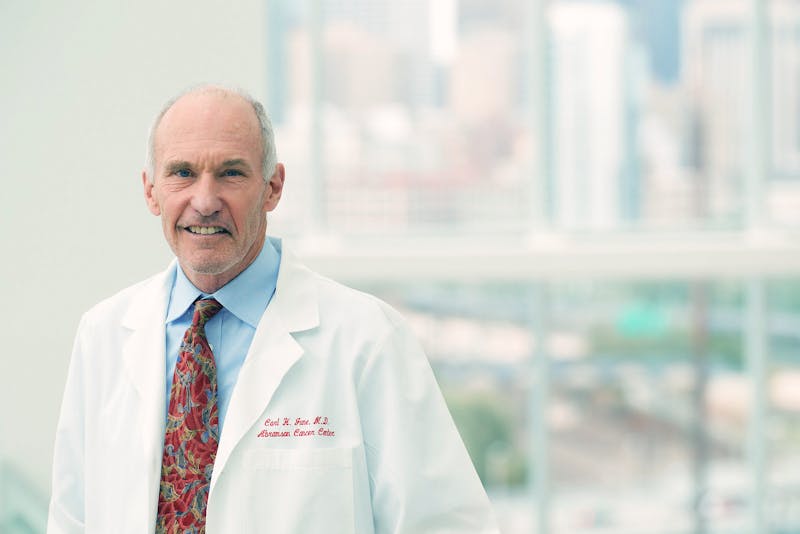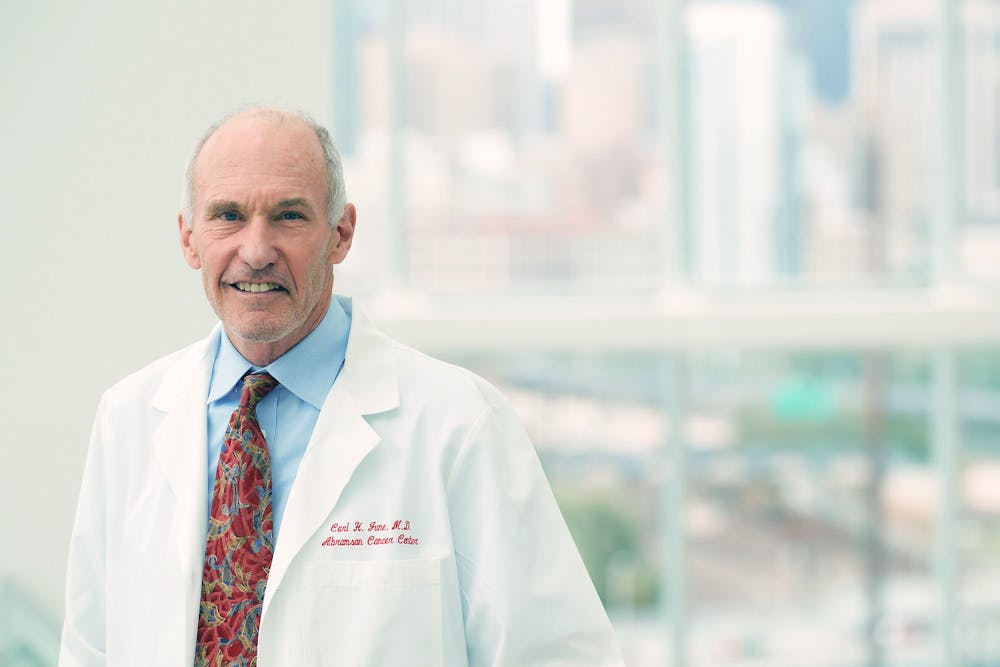Penn Medicine professor Carl June won the Broermann Medical Innovation Award for his work on CAR-T cells (Photo from Penn Today).
Perelman School of Medicine professor Carl June was recently awarded the Broermann Medical Innovation Award 2025 for his work on utilizing CAR-T cells in cancer therapy.
The award — named after German businessman Bernard Broermann — recognizes “outstanding scientific achievements in the field of medical innovation” and comes with €1 million in prize money. June’s work has involved pioneering CAR-T cell therapy and co-founding BlueWhale Bio, a startup whose technology was used in a clinical trial for cancer immunotherapy.
Modifying T-cells with chimeric antigen receptors allow them to bind to a “certain protein on the patient’s cancer cells” and help treat certain blood cancers, according to the National Cancer Institute.
“[June’s] leadership … continues to shape how we build better, faster T-cell manufacturing,” BlueWhale Bio Chief Executive Officer Peter Keller wrote in a statement to The Daily Pennsylvanian.
In an interview with the DP, June recalled that as a young man he was initially interested in being a chemist like his father. After being drafted to serve in the Navy during the Vietnam War, June said he became more “interested in biology” and medicine.
June explained that bone marrow transplants for leukemia were coming to the forefront of medical research during his time in medical school. Bone marrow contains stem cells and T-cells, according to the American Cancer Society.
“I went to the [Fred Hutchinson Cancer Center] as a postdoc to learn [about these transplants],” June said. “[These] could cure some patients of leukemia but had one very severe toxicity, which was [that] the T-cells from the donor could sometimes cure the leukemia, but it could also kill the patient.”
June said that his studies showed him “how powerful” T-cells are. After joining Penn Medicine in 1999, he worked with Perelman School of Medicine professor Bruce Levine to research T-cells.
“There’s no universal donor [for T-cells],” June said. “That’s why we had to work out how to grow the patient’s own T-cells.”
BlueWhale Bio co-founder and Penn professor James Riley found that if researchers take the nucleus out of leukemia cells, what’s left is a way to grow T-cells. June said that the company aims to find a “special way to grow those cells.”
Sign up for our newsletter
Get our newsletter, DP Daybreak, delivered to your inbox every weekday morning.
“When babies are born, you have an umbilical cord, it’s cut, and there’s blood in [the cord],” June said. “It’s a really good source of T-cells.”
June added that he and Riley are working closely on this project. In a statement to the DP, Riley praised June’s team as the “best in academic medicine, in which fundamental knowledge is uncovered,” adding that June himself is a “true pioneer and should be lauded for his sizable accomplishments.”
June is receiving the Broermann Award alongside Columbia Professor Michel Sadelain, who helped develop CAR-T cells used for targeting blood cancer cell markers.
The Daily Pennsylvanian is an independent, student-run newspaper. Please consider making a donation to support the coverage that shapes the University. Your generosity ensures a future of strong journalism at Penn.

